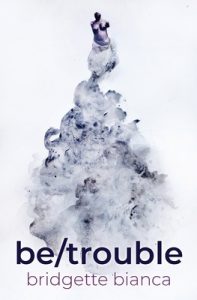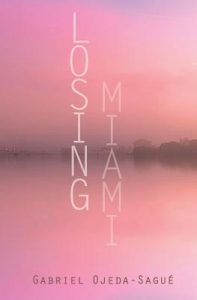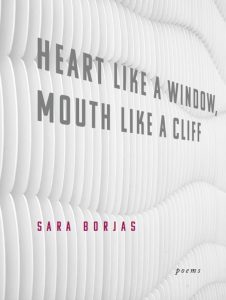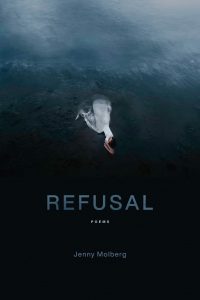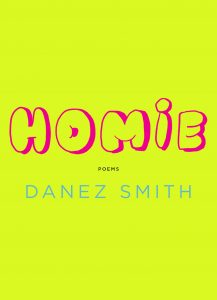March 20, 2020
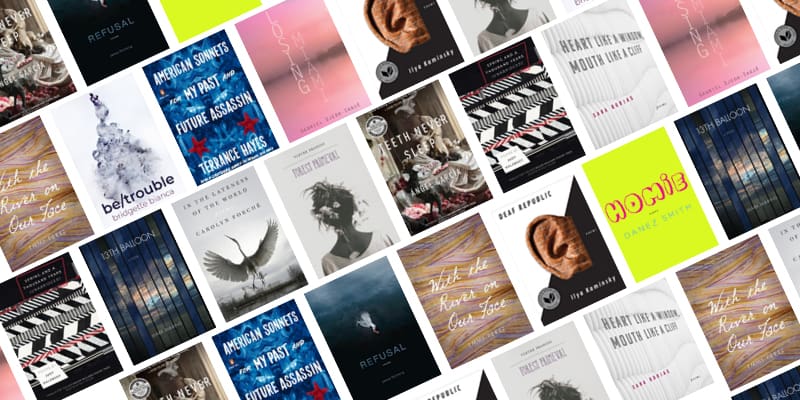
Featuring Luis J. Rodriguez, Matthew Zapruder, Sheila Black, Chiwan Choi, Ashaki Jackson, Ilya Kaminsky, Katie Ford, and F. Douglas Brown
Most weekday mornings, I wake up early to write and read poetry. This practice is sustaining in many ways, but it’s been especially calming in recent weeks. Poetry has always anchored me to this world and to the voices of others. In that spirit, I’ve asked a few of my favorite poets to recommend some collections for our current moment. We’re linking to titles at IndieBound.org, so you can either buy online or enter your zip code to purchase from an independent bookstore near your home. These small businesses are creatively exploring how to best serve their customers, and you can do your part by ordering from them.
Finally, as I consider an ongoing poetry feature for our site, I’d love to hear from you about collections, poems, and other resources you’re enjoying or finding useful these days—please send them my way at [email protected].
Luis J. Rodriguez recommends Teeth Never Sleep by Ángel García
In Teeth Never Sleep, Ángel García has managed poetic twists to mundane moments, epiphanies in what are often missed, the beauty in what is mainly overlooked. He also exudes a refreshing vulnerability as a man, reckoning with his own demons and those of men in general. This may seem easy to do, but I see immense skill and practiced instinct here. For a first book, this bodes well for the new generation of poets willing to take risks in the emotional and language terrains.
Luis J. Rodriguez has 16 books in all genres, including his latest, From Our Land to Our Land: Essays, Journeys & Imaginings from a Native Xicanx Writer.
Matthew Zapruder recommends Spring and a Thousand Years (Unabridged) by Judy Halebsky
For years I have been looking forward to the release of Judy Halebsky’s third book, Spring and a Thousand Years (Unabridged). Not only a poet but an accomplished scholar and translator, Halebsky is deeply immersed in the literature of China and Japan. In these poems, Li Po, Tu Fu, Basho, and others at times unexpectedly and charmingly appear in contemporary California. The book is also about marriage, teaching, and living in a time of environmental chaos and catastrophe. It’s adventurous and expansive in subject and form, which makes it great to read if one is stuck at home, trapped in worry. Like all of Halebsky’s work, this book is deeply connected to the forces, so present and so difficult to name, that determine our lives.
Editor-at-Large at Wave Books and a professor at Saint Mary’s College of California, Matthew Zapruder is the author of Father’s Day and Why Poetry, among other publications.
Sheila Black recommends American Sonnets for My Past and Future Assassin by Terrance Hayes; Deaf Republic by Ilya Kaminsky; With the River on Our Face by Emmy Pérez
American Sonnets for My Past and Future Assassin by Terrance Hayes: We are in a crisis of coronavirus but also a crisis of nationhood. All this fear is intensified by the overwhelming feeling that we are a divided country with a government we don’t—can’t—trust. Terrance Hayes’s sonnets are such a profound and imaginative reckoning with what America is and also might be, and how its dream shadow haunts its present realities. I think this collection is so helpful for us to sit with right now.
Deaf Republic by Ilya Kaminsky: A fable, a play, an astoundingly visceral and intimate fairy tale of a poem that feels absolutely dead-on about the moral and philosophical challenges that face us at this moment.
With the River on Our Face by Emmy Pérez: This collection by the current Texas Poet Laureate captures the fluid, encompassing, and resonant qualities of the borders between us and also manages to be, very deeply, a collection about how land and people intertwine and exist in each other, which feels like an important point in these times of political and natural upheaval. This collection lifted my heart.
Sheila Black is the author of four poetry collections, most recently Iron, Ardent (Educe Press, 2017). She is a co-editor of Beauty is a Verb: The New Poetry of Disability (Cinco Puntos Press, 2011). Her poems have appeared in Poetry, The Birmingham Review, The New York Times, and other places. She currently divides her time between San Antonio, TX, and Washington, D.C., where she works at AWP.
Chiwan Choi recommends be/trouble by bridgette bianca and Losing Miami by Gabriel Ojeda-Sagué
I think the poet we just published, bridgette bianca, and her first book, be/trouble, is pretty amazing and so necessary for this time—the forced labor and attempted erasure of marginalized people. It’s the voice of Black women, of LA, of violence and survival. Another book we published, Losing Miami by Gabriel Ojeda-Sagué, is remarkable. It’s speculative eco-poetry, a collection that addresses the water rise and eventual sinking of Miami due to climate change.
Chiwan Choi is the author of three collections of poetry, The Flood (Tía Chucha Press, 2010), Abductions (Writ Large Press, 2012), and The Yellow House (CCM, 2017). He wrote, presented, and destroyed the novel Ghostmaker throughout the course of 2015. Chiwan is a partner at Writ Large Press and a member of The Accomplices.
Ashaki Jackson recommends Forest Primeval by Vievee Francis
My choice for this moment is Vievee Francis’s Forest Primeval (Triquarterly Books/Northwestern University Press, 2015). Her poetry is deft in showing our indivisible relationship with the environment; we are growing from, mis/behaving in, and marking time with everything that nature gives. At times, her words leave me as soft as the soil in her pages. I’m reading it now to counter how nature is acting out against us with an unwieldy, fast-moving virus. It’s a grounding collection.
Ashaki M. Jackson, Ph.D., is a social psychologist, program evaluator, and poet. She has worked with youth moving through the juvenile justice system through research, evaluation and creative arts mentoring for one decade. Her work has appeared in CURA: A Literary Magazine of Art and Action, Pluck! Journal of Affrilachian Arts and Culture, and Prairie Schooner, among other journals and anthologies.
Ilya Kaminsky recommends In the Lateness of the World by Carolyn Forché
Carolyn Forché is a master poet, one whose work has always spoken to the ethical urgency of our day. This new book is filled with such poems. Open the book on the poem called “Boatman,” for instance, and you will be under a spell. The piece is as fresh as morning news and as timeless as a parable (“You tell me you are a poet. If so, our destination is the same. / I find myself now the boatman, driving a taxi at the end of the world. / I will see that you arrive safely, my friend, I will get you there.”) Yet, I feel there is also something new in this book, an even larger scope, a prophetic mode: Forché here tells us where we are as a species, and where we are going: “All who come / All who come into the world / All who come into the world are sent. // Open your curtain of spirit.” This long-awaited collection is not to be missed.
Ilya Kaminsky is the author of Deaf Republic (Graywolf Press), which was the finalist for both the National Book Award and National Book Critics Circle Award as well as the PEN/Jean Stein Book Award.
Katie Ford recommends 13th Balloon by Mark Bibbins
Mark Bibbins’s phenomenal 13th Balloon is so acutely intimate and confiding that it pierces the pandemic distances we must keep. Right now I want to read books that know what love is, and that make me feel less alone. Books of beauty and insight. Dear reader, do you? Then read 13th Balloon.
Katie Ford is the author of Deposition, Colosseum, Blood Lyrics, and If You Have to Go, all published by Graywolf Press.
F. Douglas Brown recommends Heart Like a Window, Mouth Like a Cliff by Sara Borjas; Refusal by Jenny Molberg; Homie by Danez Smith
It is not a cliché to hum The Beatles tune, “With A Little Help from My Friends,” during times like this. In fact, during these times, in particular, I have turned to three titles for the same solace the familiar song provides: Heart Like a Window, Mouth Like a Cliff, by Sara Borjas; Refusal, by Jenny Molberg; Homie, by Danez Smith. Like any aspect of family and friendship, each book offers whispers, healing, tenderness, secrets, shit talk, high fives, drunkenness, prayers, grave digging, directions home. In the hands of Borjas, Molberg, and Smith, you do more than “get by.” Their verses bring you back across the airwaves of Fresno, D&D marathons, and dreams of 90’s R&B videos to celebrate, and survive, all the while paying the highest tributes and acknowledgments.
F. Douglas Brown is the author of two poetry collections, ICON (Writ Large Press, 2018) and Zero to Three (University of Georgia, 2014), winner of the 2013 Cave Canem Poetry Prize.





